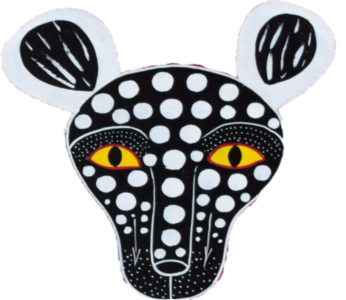April 08, 2023
Tanzania is a country rich in cultural diversity, with over 120 ethnic groups, each with their own unique traditions, art forms, and customs. Among the country's many cultural treasures are its traditional paintings, which have played an essential role in the promotion of tourism in the country. In this essay, we will discuss the role of African paintings for tourism in Tanzania.
The traditional paintings of Tanzania are highly valued for their cultural significance and beauty. The country's artwork reflects the diversity of its people, and their rich heritage, which is an essential component of Tanzanian tourism. African paintings provide visitors with a unique insight into the country's culture, history, and way of life. In turn, this helps to promote cultural exchange and understanding between Tanzania and the rest of the world.
One of the main ways that African paintings promote tourism in Tanzania is through the creation of art markets. These markets provide a platform for local artists to showcase their work to visitors, allowing them to experience the beauty and diversity of Tanzanian art. Tourists are also able to purchase traditional paintings, which serves as a way of supporting local artists and the country's economy.
African paintings are also used in the decoration of hotels, lodges, and other tourist facilities. This not only adds to the ambiance of these spaces but also serves as a way of promoting Tanzanian culture to visitors. Many tourists are interested in experiencing the local culture and are attracted to places that showcase it. By incorporating African paintings into the design of tourist facilities, Tanzania is able to offer visitors a more authentic cultural experience.
In addition to the promotion of tourism, African paintings also play an important role in preserving Tanzania's cultural heritage. Many of the country's traditional paintings are passed down through generations and are an essential part of its cultural identity. By promoting and supporting the local art scene, Tanzania is able to preserve this important aspect of its heritage.
Moreover, African paintings also serve as a means of educating visitors about the country's history and traditions. Many of the paintings depict significant events or symbols that are deeply rooted in Tanzanian culture. Visitors can learn about the country's history and beliefs by viewing these paintings and interacting with local artists. This helps to foster greater understanding and respect for Tanzanian culture.
Another way that African paintings promote tourism in Tanzania is through the establishment of art museums and galleries. These institutions provide a space for local artists to showcase their work and educate visitors about the history and significance of Tanzanian art. By preserving and displaying traditional paintings in museums and galleries, Tanzania is able to attract a wider audience of art enthusiasts and promote its cultural heritage on a global scale.
Furthermore, African paintings are often used in cultural festivals and events that attract tourists from around the world. These events provide visitors with an opportunity to experience traditional Tanzanian culture through music, dance, and art. African paintings are an essential component of these events, serving as a way of communicating the country's cultural identity to visitors.
It is worth noting that the popularity of African paintings in Tanzania has also led to the growth of the art industry in the country. Many local artists have been able to make a living from their art, selling their paintings to tourists and other buyers. This has created job opportunities and helped to boost the local economy, particularly in areas with a strong artistic tradition.
However, it is also important to ensure that the promotion of African paintings does not lead to the exploitation of local artists or the misrepresentation of Tanzanian culture. Tourists should be encouraged to purchase artwork directly from local artists or reputable art markets to ensure that they are supporting the local economy and the artists themselves. Additionally, efforts should be made to ensure that the artists are fairly compensated for their work and that their cultural traditions are accurately represented.
Moreover, African paintings have the potential to contribute to the sustainable development of tourism in Tanzania. Sustainable tourism is a form of tourism that respects the natural and cultural resources of a destination and seeks to minimize its negative impact while maximizing its positive impact. By promoting and preserving the country's cultural heritage, African paintings can be used as a tool for sustainable tourism development.
For example, traditional paintings can be used to promote eco-tourism, which is a form of sustainable tourism that emphasizes the conservation of natural resources. Many traditional paintings depict the country's rich biodiversity, including its wildlife and landscapes. These paintings can be used to promote conservation efforts and to educate visitors about the importance of preserving Tanzania's natural heritage.
Additionally, African paintings can be used to promote community-based tourism, which is a form of tourism that involves local communities in the development and management of tourism activities. By involving local artists in the promotion and management of tourism, Tanzania can ensure that the benefits of tourism are shared more equitably among the local population.
In conclusion, African paintings play a vital role in promoting tourism in Tanzania. They serve as a means of preserving and promoting the country's cultural heritage, educating visitors about its history and traditions, and providing a unique and authentic cultural experience for tourists. Through the establishment of art markets, museums, and galleries, and the incorporation of paintings into tourist facilities and cultural events, Tanzania is able to showcase its diverse and vibrant art scene to the world.


